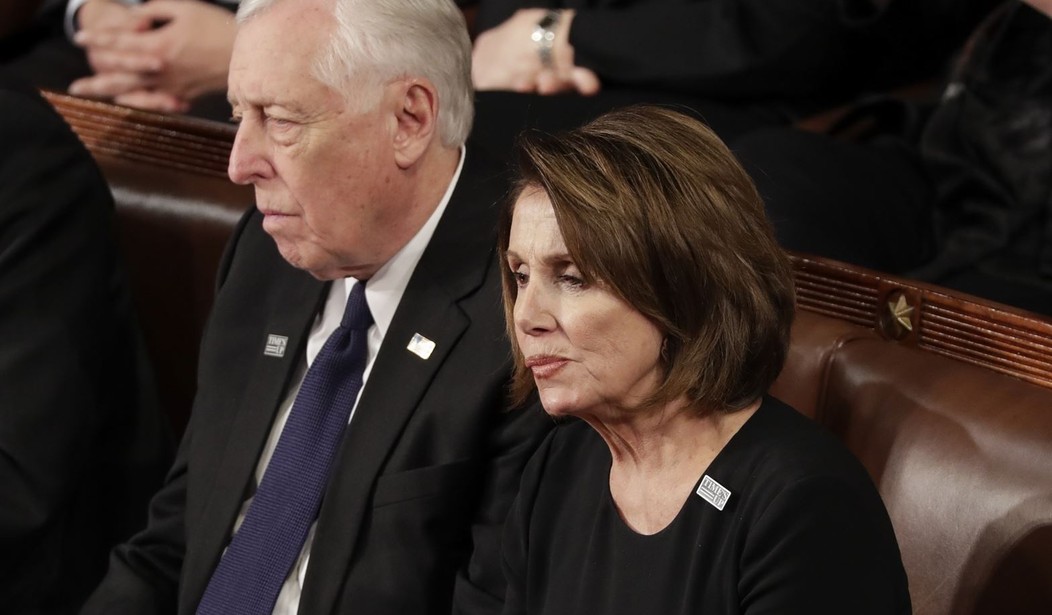It's not just Bernie Sanders. The man in charge of getting Democrats elected nationally is throwing cold water on the "blue wave" talking point that has energized liberals -- including and especially members of the media -- for months. With roughly two weeks until election day, Tom Perez is downplaying his party's chances. What is his motivation for doing so? We'll discuss that in a moment, but first, here's the clip from his CNN appearance:
"I don't use the term 'blue wave,'" says DNC chair Tom Perez as a new poll shows President Trump's approval rate at its highest. "I always talk about the need for the blocking and tackling ... To make sure you're leading with your values, and that's how we've been winning" pic.twitter.com/q1fQurWiPb
— New Day (@NewDay) October 22, 2018
I'd argue there are three things going on here: (1) Expectations management. If Democrats win, say, 30 House seats in November, that'll be enough to eke out a majority, but it'll feel underwhelming compared to the anti-Trump landslide progressives have been envisioning. By trying to convince voters that the party may not perform all that well in November, Perez is attempting to mitigate widespread public anticipation of a dominant showing. Diminished expectations would make post-election crowing or spinning easier. (2) Base motivation. Democrats were convinced Hillary Clinton would win easily in 2016 (remember these projections?), so Trump's victory came as a genuinely shocking gut punch to many. Perez wants to remind his fellow partisans of that feeling by instilling the fear that Republicans may pull another rabbit out of a hat in the midterms. I think the likelihood of complacency on the Left is pretty low under the current circumstances, but even a slight downgrade from 'ten-out-of-ten' intensity could prove fateful in some close races. Telling your voters that this thing's in the bag sends every wrong message. (3) Legitimate concern that Republicans are gaining:
Recommended
Another proof point on the new GOP bullishness on the House >
— David Catanese (@davecatanese) October 23, 2018
“The Democrats’ lead in those Clinton districts has narrowed a bit since the beginning of the month.” https://t.co/Wdf3WUxt3g
Republicans say some congressional races are moving back in their direction in the last few weeks. The four new races to watch: Nebraska's 2nd, Minnesota's 8th, Iowa's 1st and Florida's 27thhttps://t.co/Z2BU4YlnsX
— Axios (@axios) October 23, 2018
There's certainly some evidence that Democrats' universe of potential House pick-ups has receded in recent weeks, and a number of data points we've mentioned recently back up that thesis. But it's a mistake to conclude that the GOP is now favored to retain its lower chamber majority. History strongly cuts against that outcome. Trump era off-year and special election outcomes also point to a distinct Democratic trend. And it's not as though all, or even most, of the late movement has been toward the Republicans:
New at @CookPolitical: TEN House rating changes (8 towards Dems). Biggest moves:#AKAL: Young (R) - Likely R to Lean R#FL06: OPEN (R) - Likely R to Lean R#FL15: OPEN (R) - Lean R to Toss Up#FL27: OPEN (R) - Toss Up to Lean D#IL12: Bost (R) - Toss Up to Lean R
— Dave Wasserman (@Redistrict) October 23, 2018
Consider the math:
Polling leads for Dem House Pick-Ups: (+19 seats)#VA10#NJ02#NJ03 #NJ11#PA01#PA05 #PA06#PA07#PA17 #FL27 #KS03#IA01#MI11#MN02#MN03#CO06#AZ02#CA49#CA45
— David Catanese (@davecatanese) October 23, 2018
(Another 2 DOZEN are within the margin, with either D or R leading)
If Democrats (roughly) sweep the 19 races in which they currently hold solid polling leads, all they'd need to do is win a fraction of the two dozen toss-up races to win back the gavel. That's not just likely; it's probable. And because Democrats have done a better job on new voter registration, have built a lead with independents, and could very well benefit from late-deciders breaking against the party in power, it's hardly a stretch to imagine them winning a majority of the margin-of-error contests. If that's the case, a net gain in the mid-thirties is absolutely in the offing. A better than expected evening could push that number even higher. Republican voters must show up in force simply in order to minimize Democratic House gains. A robust showing in certain key states could also contribute to net GOP gains in the Senate, as we've discussed extensively. And as I've said over and over again, holding the Senate (especially with an expanded majority) is extremely important when it comes to confirming judges. I'll leave you with this:
"Republicans outpacing Democrats in early voting in key states, NBC News finds" https://t.co/0pU0MelaGW
— Kyle Kondik (@kkondik) October 22, 2018
Caution: Early voting numbers are exceedingly difficult to place into proper context ahead of election day. Indeed, many Democrats found false hope in such data in 2016, which didn't end well for them. Either side would be very foolish to take anything for granted this cycle. And by the way, if House Democrats do regain the majority, guess who sounds pretty confident that she'll be Speaker again?

























Join the conversation as a VIP Member